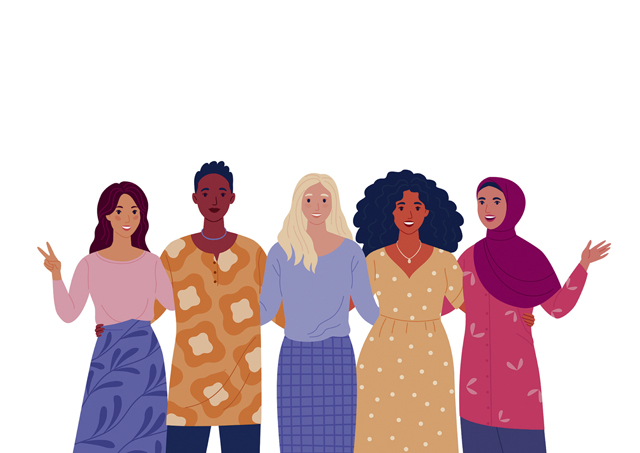
March 8 has been known as International Women’s Day around the world. In some countries it is observed as a public holiday such as in Belarus, Armenia, Georgia, Kazakstan, Poland, Russia, Uzbekistan, and Ukraine. In Germany, it is only an official holiday in the states of Berlin and Mecklenburg-Vorpommern with stores and official offices closed. It is, however, generally observed as a day to honor and acknowledge women and their achievements in promoting equality, women’s voting rights and emancipation. Did you know that a German woman sparked a flame which led to the implementation of an international day to honor women?
International Women’s Day has been observed since the early 1900’s, during a time of great turbulence and expansion in the industrial world. By 1908 critical debate occurred among women, their oppression and inequality spurred them to speak up and campaign for change. In the same year, 15,000 women marched through New York City demanding shorter working hours, better pay and voting rights.
A year later and in accordance with a declaration of the Socialist Party of America, the first National Woman’s Day was observed across the United States on Feb. 28. In 1910 a second International Conference of Working Women was held in Copenhagen with Clara Zetkin, the leader of the Women’s Office for the Social Democratic Party in Germany, who proposed the idea of an international day for all women. The conference was attended by one hundred women from 17 countries, representing unions and political parties, and including the first three women elected to the Finnish parliament. Zetkin’s proposal was met with unanimous approval, and the first International Women’s Day was celebrated on March 19, 1911, in Austria, Denmark, Germany, and Switzerland.
On the eve of World War I in 1914, campaigning for peace, Russian women observed their first International Women’s Day Feb. 23, and after further discussions, it was agreed to annually observe the day on March 8, which has been the global date for International Women’s Day ever since.
In 1914 further women across Europe held rallies to campaign against the war and to express women’s solidarity. In London there was a march from Bow to Trafalgar Square in support of women’s suffrage on March 8, 1914, where Sylvia Pankhurst was arrested on her way to speak at Trafalgar Square.
In 1917 Russian women began a strike for “Bread and Peace” in response to the death of over two million Russian soldiers in World War I. Opposed by political leaders, the women continued to strike until four days later the Tzar was forced to abdicate, and the government granted women the right to vote.
New Zealand was the first country in the world to allow women to vote as early as 1893. Mary Shipley was the first female prime minister of New Zealand from 1997 to 1999. Women’s suffrage followed in Germany and Great Britain in 1918, and the United States in 1920. On July 20, 1960, Sirimawo Bandaranaike became the world’s first female prime minister in Sri Lanka (then Ceylon). Margaret Thatcher served as Britain’s first female Prime Minister from 1979 to 1990 and Angela Merkel was Germany’s first female chancellor from 2006 to 2021.
International Women’s Day was marked for the first time by the United Nations in 1975 and the first annual theme “Celebrating the past, Planning for the Future” was announced in 1996, with varying topics following each year.
By the new millennium there was little mainstream activity, the world had moved on, and feminism wasn’t a popular topic. Following a year of planning and collaborative conversations, the www.internationalwomensday.com platform was launched with the specific purpose of re-energizing the day and inviting mass participation — a focus which continues to this day — by celebrating and making visible the achievements of women, while continuing the call for accelerating gender parity. 2011 saw the 100-year anniversary of International Women’s Day — with the first IWD event held in 1911.
In the United States, former President Barack Obama proclaimed March to be “Women’s History Month” in 2011, calling Americans to mark IWD by reflecting on “the extraordinary accomplishments of women” in shaping the country’s history. With more women in the boardroom, greater equality in legislative rights, as pilots, scientists and world leaders, one could think that women have gained true equality.
The unfortunate fact is that women are still not paid equally to that of their male counterparts, women still are not present in equal numbers in business or politics, and globally women’s education, health and the violence against them is worse than that of men, an estimated 12 million teenage girls are forced into marriage a year worldwide. Paramount progress has been made in the last 100 years, but there are still many obstacles to tackle in the future.
The IWD 2024 campaign theme is “Inspire Inclusion,” inviting others to understand and value women’s inclusion and forging a better world, this again leads to a sense of belonging, relevance and empowerment.


